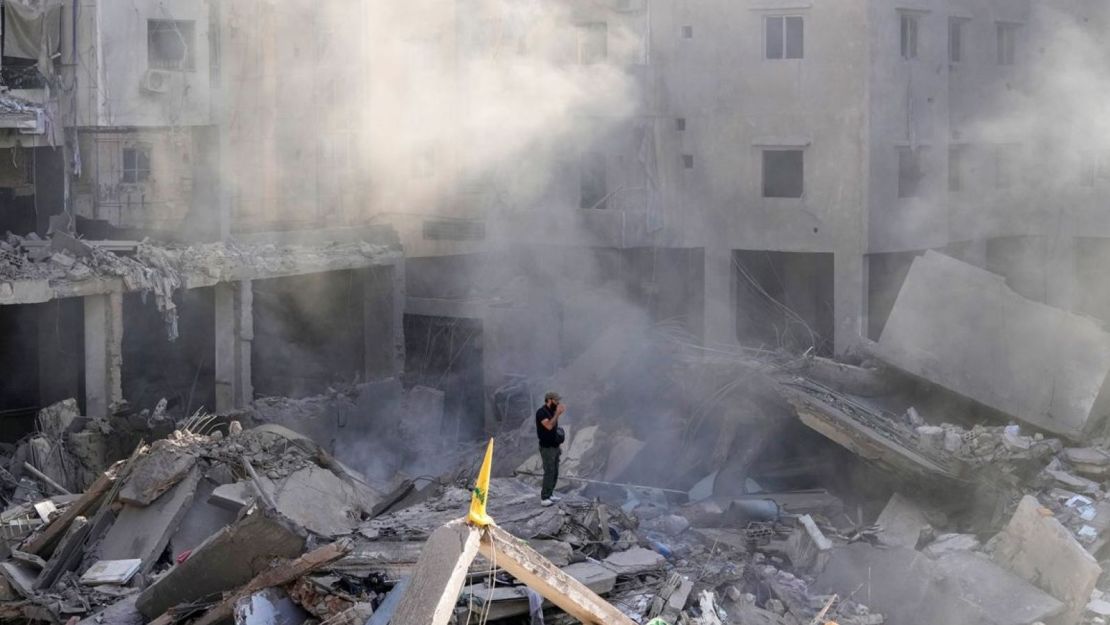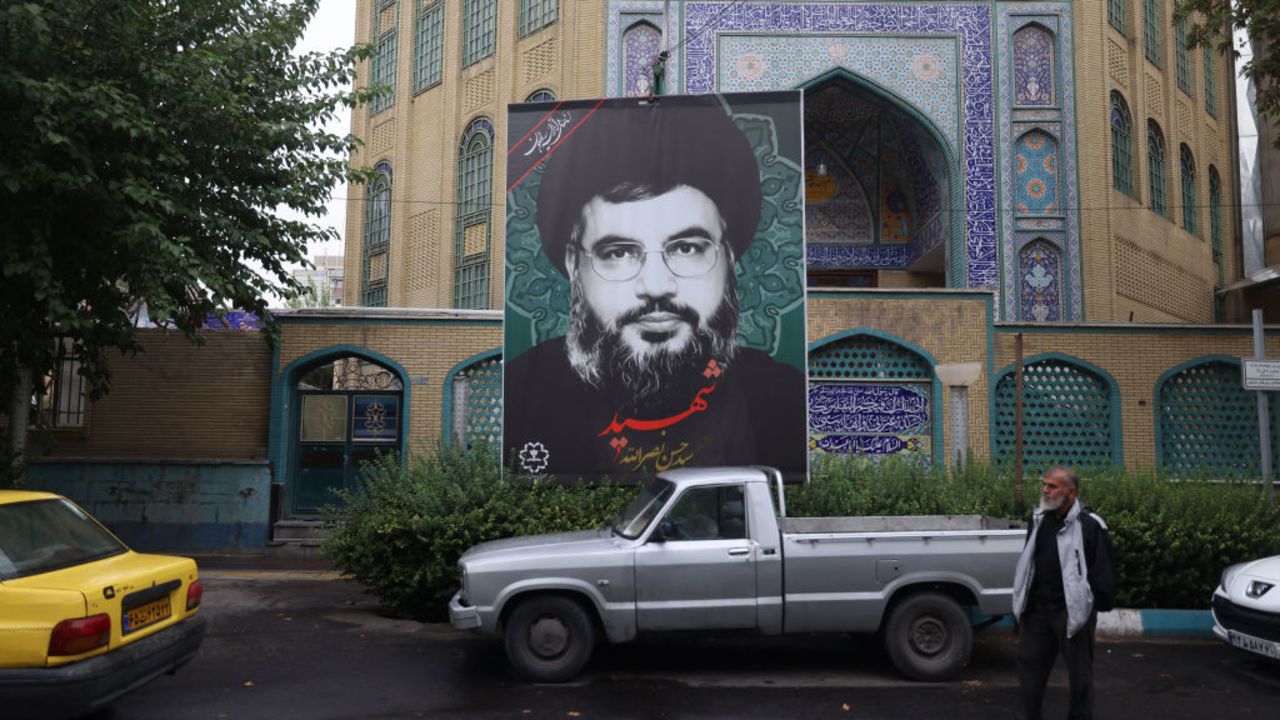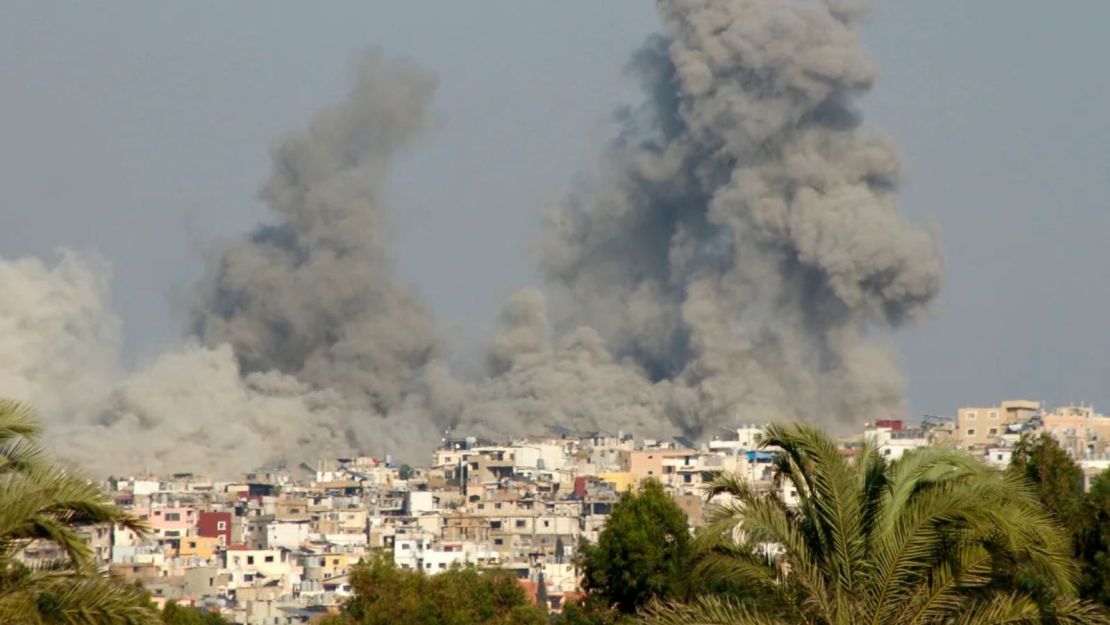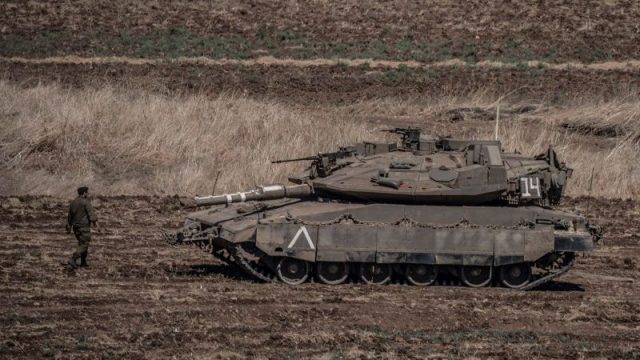(CNN) – Israel has launched what it called “a limited ground operation” on its northern border with Lebanon against Iran-backed militant group Hezbollah, opening a dangerous new phase in the nearly year-long war.
The raid, which Israel’s National Defense Cabinet called the “next phase” of its war against Hezbollah, was the fourth time Israeli soldiers had publicly entered Lebanese soil in nearly 50 years. 34 day war Israel fought in 2006.
Israeli troops have set the stage for an incursion in Lebanon in recent days, intensifying airstrikes that have killed hundreds of people, destroyed homes and displaced nearly a million people.
The latest escalation comes after Israel killed Hezbollah leader Hassan Nasrallah in an airstrike on Friday. Destroy the dome The most powerful paramilitary force in the Middle East.
This is what we know.
Israeli officials characterized the incursion into southern Lebanon as limited and said there would be “no long-term occupation”.
The Israeli military said it was focusing on eliminating “immediate threats” to Lebanese cities along the border, including Hezbollah’s ability to infiltrate northern Israel.
However, officials declined to specify the depth at which Israeli troops would enter the country or the expected duration of the operation.
Israeli leaders indicated the next course of action. On Monday, Israeli Defense Minister Yoav Gallant told troops near the Lebanese border that Hezbollah leader Nasrallah’s death was “a very important step, but not the final step” and that “we will use all the capabilities at our disposal.”
Although the extent of Israel’s military plans inside Lebanon remains unclear, Prime Minister Benjamin Netanyahu has increasingly indicated. And more challenging Widespread outrage over rising civilian casualties in Lebanon and Gaza has fueled international calls for containment and escalation.
Previous military operations by Israel have proven to be anything but limited in their objectives as initially announced.
Examples include the years of the Israeli occupation of southern Lebanon, which began in 1982 with the narrow, limited mission of destroying the Palestine Liberation Organization (PLO).
More recently, the Israeli military announced a “limited” operation in Rafah, south of Gaza, that left the city in ruins.
Just before the raid, Israeli media reported that Israel’s National Defense Cabinet had approved the “next phase” of its war against Hezbollah.
In preparation, the Israeli military launched small-scale attacks and artillery barrages along the border with Lebanon, and cordoned off several communities in northern Israel, restricting civilian movement there.

A Lebanese security source said the Lebanese army had evacuated observation posts along the southern border and moved to camps in border towns.
Meanwhile, Israeli warplanes again bombarded the southern suburbs of the Lebanese capital, Beirut, a Shiite stronghold of Hezbollah.
CNN
” data-fave-thumbnails=”{“big”: { “uri”: ” }, “small”: { “uri”: ” } }” data-vr-video=”false” data-show-html=”“data-byline-html=”
” data-timestamp-html=”
” data-check-event-based-preview=”” data-is-vertical-video-embed=”false” data-network-id=”” data-publish-date=”2024-09-30T11:38:57.842 Z” data-video-section=”mundo” data-canonical-url=”data-branding-key=”” data-video-slug=”hezbollah-nuevo-lider-maximo-muerte-hassan-nasrallah-cafe-tv -fast” data-first-publish-slug=”hezbollah-nuevo-lider-maximo-muerte-hassan-nasrallah-cafe-tv-fast” data-video-tags=”” data-details=””>

Hezbollah to elect new top leader after Hassan Nasrallah’s death
Following an Israeli airstrike inside Beirut city limits early this Monday for the first time since an attack by the Palestinian militant group Hamas against Israel on October 7.
Isn’t Israel at war with Hamas in Gaza? Why are Israeli troops in Lebanon now?
Lebanon-based Israel and Hezbollah are a staging ground Escalation of tensions The war in Gaza began after Hamas attacked Israel last October. Hezbollah has said it will not stop attacking Israel until there is a ceasefire in the Palestinian territories.
In recent weeks, Israel has refocused its military objectives northward, with a new war goal of returning displaced residents to their homes along the Lebanese border. About 60,000 Israeli civilians were forced to flee their homes due to Hezbollah rocket attacks.
Fierce fighting between the two rivals has followed the 2006 Lebanon War, in which 1,100 people have died. Nearly 50 civilians and 121 Israeli soldiers were killed.
Last month, pagers and walkie-talkies used by Hezbollah members killed dozens of people and maimed thousands, including women and children, in a coordinated Israeli offensive across Lebanon.
Israel intensified a relentless bombing campaign across Lebanon targeting Hezbollah infrastructure and leaders, but the strikes destroyed homes and neighborhoods in densely populated areas. Killed in massive airstrikes in South Beirut Many Hezbollah leaders Already over 1,000 people.
The latest developments raise questions about how a weakened Hezbollah will respond and the extent to which its patron, Iran, might become involved, raising fears once again. Widespread territorial warfare.
Hezbollah is part of an Iran-led coalition that includes Yemen, Syria, Gaza and Iraq that has attacked Israel and its allies since the war against Hamas began.
In a fiery speech on Sunday, Netanyahu said one of Israel’s goals was to “change the balance of power in the region” and that “there is no place in Iran or the Middle East that Israel cannot reach.”

Killing Hezbollah leader Nasrallah and ending the group’s ability to launch a large-scale attack on Israel are “necessary” conditions for achieving that goal, he said.
Israel has stepped up attacks against other Iranian-backed militias on several fronts, including launching strikes against The Houthis in Yemen.
However, despite recent Israeli attacks on its proxies, Iran has remained wary of entering into direct conflict with its long-time foe, bringing its decades-long shadow war to light. Many observers fear that any direct Iranian retaliation could draw the United States into conflict.
The focus was on the once-powerful US finding itself increasingly powerless to control its ally or influence other major belligerents. Bad regional crisis Quickly.
US officials told CNN that they told their Israeli counterparts had informed Infiltration into Lebanon is expected to be limited in scope and duration.
This Monday, the White House affirmed that Israel has the right to defend itself, but warned that the ground operation risks escalating into a protracted incursion.
Presented by President Joe Biden 21 day ceasefire proposalSupported by other US allies, it was immediately rejected by Netanyahu, much to the frustration of the White House.
The US is a major arms supplier to Israel – and it probably did 900 kg of bombs used to kill the head of Hezbollah — but Biden and his advisers persisted Calls for a diplomatic resolution.
—CNN’s Jeremy Diamond, Lauren Izzo, Tara John, Mick Grever, Eyat Gordy, Irene Nassar, Stephen Collinson, MJ Lee, Lex Harvey, Sarah El Sirkhani, Abeer Salman and Mike Schwartz contributed to this report..





